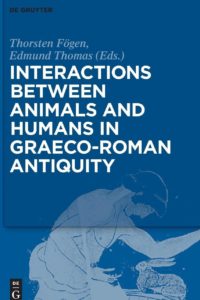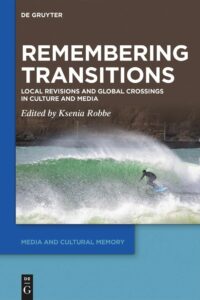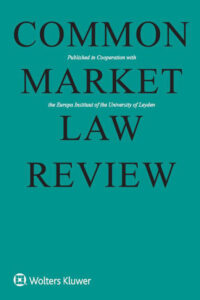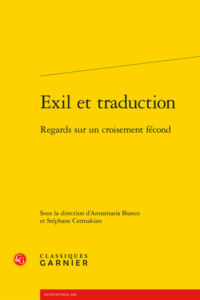Interactions between animals and humans in Graeco-Roman antiquity

About the book
The seventeen contributions to this volume, written by leading experts, show that animals and humans in Graeco-Roman antiquity are interconnected on a variety of different levels and that their encounters and interactions often result from their belonging to the same structures, ‘networks’ and communities or at least from finding themselves together in a certain setting, context or environment – wittingly or unwittingly. Papers explore the concrete categories of interaction between animals and humans that can be identified, in what contexts they occur, and what types of evidence can be productively used to examine the concept of interactions. Articles in this volume take into account literary, visual, and other types of evidence. A comprehensive research bibliography is also provided.
Get the book from Athenaeum Booksellers, Amsterdam’s largest independent bookstore.
About the author
Thorsten Fögen, born in Hagen (Westfalen), Germany, in 1971. Ph.D. from University of Heidelberg, Germany. Reader (Associate Professor) in Classics at Durham University, UK.
His published works include a book on Roman authors’ attitudes towards the Latin language (‘Patrii sermonis egestas’: Einstellungen lateinischer Autoren zu ihrer Muttersprache, Munich & Leipzig 2000: Saur) and a study dealing with Roman technical writing (Wissen, Kommunikation und Selbstdarstellung. Zur Struktur und Charakteristik römischer Fachtexte der frühen Kaiserzeit, Munich 2009: C.H.Beck).
He has edited ten volumes, most recently Graeco-Roman Antiquity and the Idea of Nationalism in the 19th Century: Case Studies (Berlin & Boston 2016: De Gruyter; edited together with Richard Warren), and Letters and Communities: Studies in the Socio-Political Dimensions of Ancient Epistolography (Oxford 2018: Oxford University Press; edited with Paola Ceccarelli, Lutz Doering & Ingo Gildenhard).


